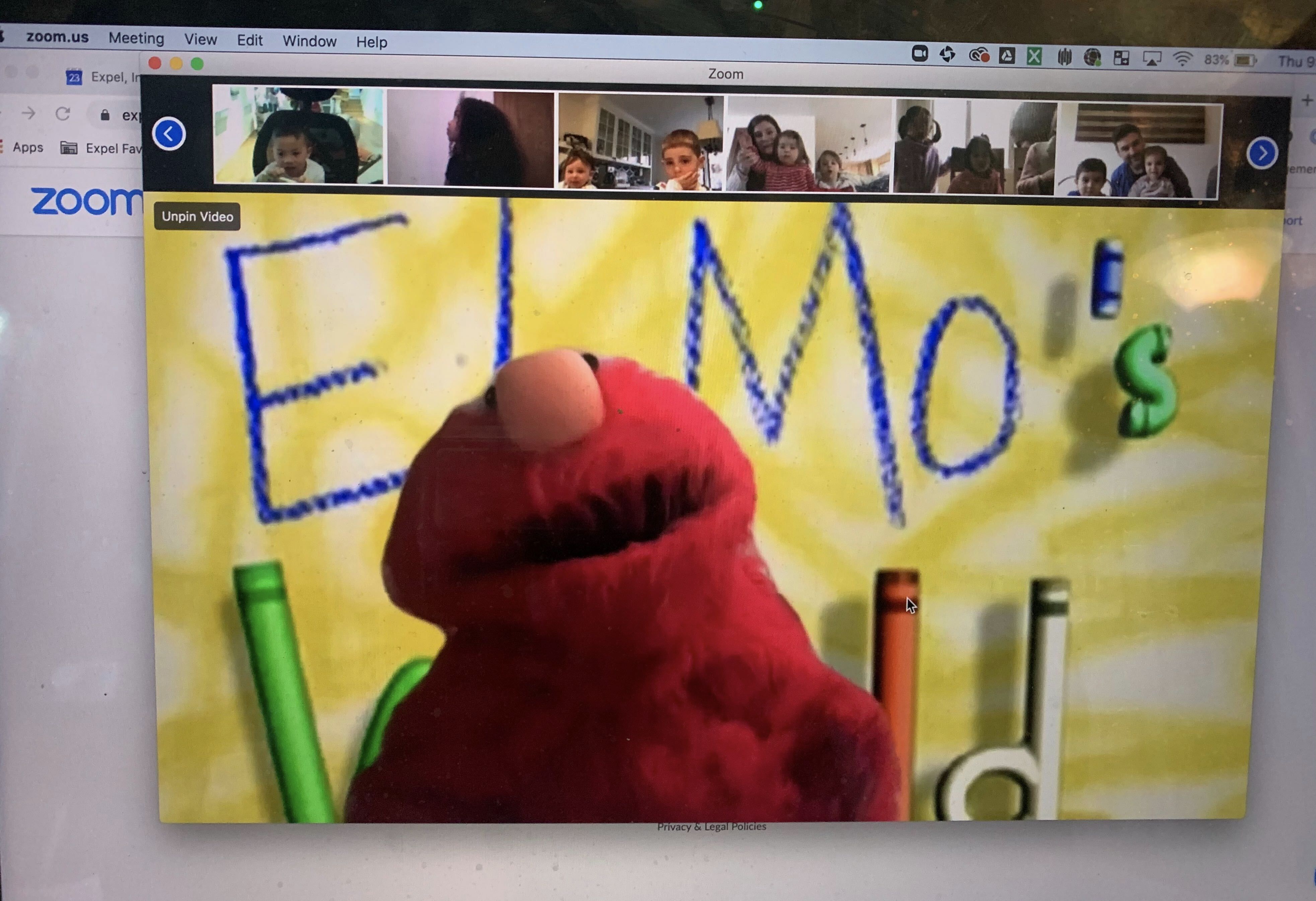Employee Experience First: Expel’s Amy Rossi on Leading During COVID-19

How Expel finds strength in meeting both employees and customers where they are.
Amy Rossi joined Expel two years ago as the VP of Employee Experience for the security-made-easy company. Drawn by the opportunity of building company culture from the ground up, Amy says Expel’s values of transparency and putting people first have helped provide support and reassurance for employees during a difficult time.
About this series: As we navigate the evolving landscape of the world today, it's been powerful to see many organizations taking on new initiatives to engage with their employees, customers, and communities.
We spoke with leaders at our portfolio companies about the meaningful actions they’ve taken to continue moving forward through the COVID-19 pandemic. We hope the insights, advice, and best practices they’ve shared might be helpful to others going through similar challenges.
We all read the news about what was happening in China at the start of the year, yet COVID-19 still took us by surprise. How did Expel deal with the fallout?
Amy: We had been tracking it closely, and when we knew there was the possibility of some major impacts here a small group of us started meeting each night at 9pm — the CEO, CISO, Chief Counsel and myself. We wanted to track what was going on and what we should be doing. One of Expel’s most important values is taking care of our people first, so we quickly made the decision to move to remote working. We established Monday management calls for all people managers to share what was going on inside and outside of the company, as well as learning resources like how to deal with Zoom fatigue, or suggested questions to ask during one-to-ones. We increased the frequency of all company meetings — we call them barndoggles — so we now meet every Wednesday instead of monthly. Increasing communication is so important when you don’t have the opportunity to talk face to face.
This has been a tough period for everybody, but what have you learned?
Amy: We’ve learned some truths, certainly, like the importance of getting really clear on your values and what matters to you as a company. The importance of developing strong leaders and developing strong communicators has also proven to be so critical when we’ve had to make decisions and changes really fast that impact all of us on a daily basis.
How have your employees’ work routines changed as a consequence of working remotely?
Amy: Firstly, our lives changed in that we were dealing with stress about our health and the health of our family and friends. We had people worried about family members in other parts of the country, and many people in the company were trying to work while also attempting to be parents and teachers.
We had to change how we worked. It became very important to understand the true work capacity of each person on our team so that we could adjust work and priorities. Strong communication became essential: when are you working and not working, and how can someone get in touch with you? Best practices, like following up with meeting notes if someone can’t make a meeting — thinking through all those decisions in very clear ways became very apparent.
What can the leadership team do to instill a sense of safety and resilience?
Amy: Leadership becomes even more critical during a crisis. We really doubled down on the core values of our company, and particularly taking care of our people first. That was what drove the decisions we made.
Our CISO, Bruce Potter, cares a lot about personal security, and so created educational resources to help employees take care of their families and make sure everyone had what they needed at home. Another mantra we have here is to stay calm and make good decisions — Merk, our CEO, says it at the end of every weekly meeting.
There are a couple of things that will change in the employee experience as a result of COVID-19. One is working from anywhere — that is now a reality. The purpose of offices may change, though they aren’t going to go away completely because people need to come together, meet, collaborate, and feel the energy of one another in a room. That has been missing these last few months. But if the heart of our company is no longer going to be in an office, if it’s going to be virtual, what does that mean for the moments that matter? How do you still create a great employee experience?
It’s critical that companies build strong communicators and strong leaders — that has proved to be so important during this time, and during any time of change.
We've always known it's important for leaders to be incredibly good communicators, and right now it’s really important to listen.
We should be doing more listening, to hear what people need and what needs to change, so that we can be in the best place. We need to be as informed as possible and then use that input to determine what we can do to make positive changes going forward. We already had the ability to ‘pulse’ all of our employees every two weeks using a platform called TINYpulse. We also added some specific surveys to increase listening, and suggested questions for managers to ask during one-to-ones.
How have your team’s priorities shifted because of COVID-19?
Amy: Building and scaling a great place to work has been my top priority since I joined Expel. I've focused my team around the four M's of mantras, management, measurements, and machinery — that’s what is required to scale a really great culture. So of these four M's, developing and having really strong management has proved to be even more important during the time of COVID-19.
For example, we started to create a 12-month development program for managers and launched it in February. We were already going in the right direction, but just had to quickly take that and make the learning completely virtual. As part of that program, we also offered each manager at Expel access to a business coach through a program called BetterUp for several months. We’re really encouraging our managers to continue meeting with their coaches to get additional support and direction during these strange times.
You’d had experience in some established businesses after leaving college, so what inspired you to join a startup?
Amy: The opportunity to build company culture was huge, and part of it was finding leaders who cared about similar things as I did. I was also drawn to the challenge because it's fun to do something completely different. Joining a startup has risks, but staying at an established company has risks too. Sometimes you just take a leap and say we’re going to try this as a family! And if it hadn’t worked out, then I believe we have the capability to try something different.
How was your virtual take-your-kids-to-work day?
Amy: I feel really fortunate that I have a team of people that cares so much about our employees. At the beginning of the year we set out a plan for what we wanted to do with employee experience. Take-your-kids-to-work day was something we’d been planning, so when we had to decide whether to do it this year we just said why not! It came at a time when parents really needed to celebrate this connection between work and their families. So we planned a day for children of all ages and kicked off with our head of sales, Denise Hayman, who read a story to our youngest children. Liz Barrows, a leader on my team, sent the story to kids in advance so they had a copy at home. Then she dressed up like Elmo and joined with the Elmo's World background on Zoom so it looked like Elmo was joining for story time!
We had sessions for older children including one on rocks and minerals, one about online safety, and one for teenagers run by our founder about how to create a company. I’ve spent the last 20 years teaching dance locally in the community, so I closed the day with a dance class. That allowed me to bring my joy of dance together with my joy of creating amazing places to work. Lucky me for being able to teach dance during the middle of a work day!

“Elmo” joins the story time session of Expel’s virtual bring-your-kids-to-work day.
What is Expel doing to support parents as they look ahead to a school year that will begin with 100% distance learning for many students?
Amy: We are approaching this by first understanding the anticipated impact the school year will have on our working parents. We're listening in three ways: through a survey, manager conversations, and Employee Experience led focus groups. The survey asked about expected impact to work capacity, ideas for how the company can support, and checked in on overall well-being. We're currently conducting focus groups to talk through the ideas below. We likely won't be able to do them all, but sharing the longer list in hopes that it helps others come up with their own plans to support working parents.
- Provide as much flexibility as possible in terms of when and where work gets done.
- Teach your managers how to adjust workload/expectations to realistic capacity.
- Review your meeting times, norms, and practices - what can be improved?
- Provide resources so people can take care of themselves: encourage exercise, nutrition, sleep, meditation, etc. Offer classes that can be done in brief bursts and on your own time.
- Share information on how to set up learning pods and find tutoring support.
- Remind each other that we are all in this together.
Published — July 30, 2020
-

-

